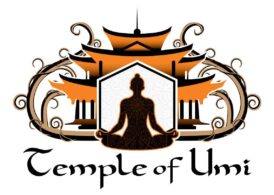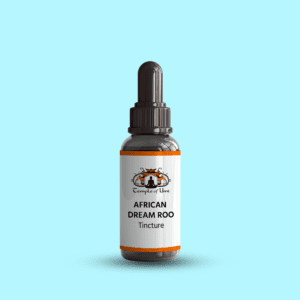Ayahuasca research studies

By Temple of Umi

Table of Contents
Unlock the secrets of Ayahuasca through detailed research studies, from personal healing experiences to clinical trials. Gain a deeper understanding of this ancient medicine’s power.
Introduction
Ayahuasca, a traditional Amazonian brew with deep roots in indigenous cultures, has captivated the world not just with its profound psychoactive effects but also with its potential therapeutic benefits. Initially used for spiritual and healing purposes in the Amazon basin, its complex concoction, primarily consisting of the Banisteriopsis caapi vine and Psychotria viridis leaves, has sparked a global surge in scientific curiosity. This guide aims to demystify Ayahuasca by delving into the pivotal research studies illuminating our understanding of its effects, mechanisms, and potential applications in modern medicine.
Understanding Ayahuasca
- What is Ayahuasca? Composition and active compounds
- Ayahuasca is a potent brew made from the Banisteriopsis caapi vine and Psychotria viridis leaves. The vine contains harmala alkaloids and monoamine oxidase inhibitors (MAOIs), while the leaves are rich in N, N-Dimethyltryptamine (DMT), a powerful psychedelic substance. This combination allows DMT to be orally active, leading to profound changes in consciousness. Learn more.
- Historical and cultural context of Ayahuasca use
- For centuries, Ayahuasca has been integral to the ceremonial, religious, and healing practices of various indigenous peoples in the Amazon. Its use was primarily for spiritual awakening, divination, and healing, emphasizing its sacred status in these cultures.
- Ayahuasca’s journey from traditional to modern therapeutic contexts
- The transition of Ayahuasca from an indigenous sacrament to a subject of Western scientific research and therapy has been remarkable. Initially met with skepticism, its potential for treating various psychological disorders has now made it a focal point of contemporary psychedelic research.
Scientific Research Overview
- The scope of Ayahuasca research: From neurobiology to psychology
- Research studies have explored Ayahuasca’s impact across a broad spectrum, from its neurobiological effects on the brain to its psychological benefits in treating depression, PTSD, and addiction. This multifaceted approach has helped to unravel the complex interplay between its chemical constituents and their psychotherapeutic potential.
- Methodologies in Ayahuasca research: Challenges and advancements
- The study of Ayahuasca poses unique challenges, including the standardization of dosages, the setting of sessions, and the subjective nature of psychedelic experiences. Despite these hurdles, advancements in research methodologies have enabled more rigorous and systematic investigation, providing valuable insights into its effects.
- Ethical considerations in studying psychedelic substances
- Researching Ayahuasca and other psychedelics raises significant ethical considerations, from ensuring informed consent and the well-being of participants to addressing the cultural appropriation of indigenous practices. Navigating these ethical waters is crucial for the integrity and sustainability of Ayahuasca research.
Ayahuasca and Mental Health
Ayahuasca’s Impact on Depression and Anxiety: A Review of Studies
- Introduction to Ayahuasca’s rising popularity in mental health treatment.
- Summary of key research findings on Ayahuasca’s effects on depression and anxiety.
- Case studies highlight significant improvements in symptoms.
- Statistical analysis of Ayahuasca’s efficacy compared to conventional therapies.
- Discussion on the safety and potential side effects of Ayahuasca use in mental health contexts. Learn more.
PTSD and Ayahuasca: Potential for Healing Beyond Conventional Treatments
- Overview of PTSD and limitations of current treatment options.
- Detailed examination of Ayahuasca’s potential as a therapeutic tool for PTSD.
- Personal anecdotes from veterans and trauma survivors.
- Insights from psychologists and psychiatrists on Ayahuasca’s therapeutic benefits.
- Considerations for integrating Ayahuasca into PTSD treatment plans.
Exploring the Therapeutic Mechanisms: How Does Ayahuasca Affect the Brain?
- An exploration of the psychoactive compounds in Ayahuasca.
- Neuroscientific research on Ayahuasca’s impact on brain function.
- Changes in neural connectivity and brain plasticity.
- The role of DMT and harmalines in therapeutic outcomes.
- Theoretical models explaining Ayahuasca’s healing effects on mental health.

Ayahuasca’s Effects on Creativity and Self-Perception
Enhancing Creativity: Case Studies and Subjective Reports
- Introduction to the concept of psychedelics enhancing creativity.
- Compilation of case studies and subjective experiences with Ayahuasca.
- Artists and creatives’ testimonies on newfound inspiration.
- Analysis of pre- and post-Ayahuasca creative output.
- Discussion on the implications for creative professions.
The Role of Ayahuasca in Self-Awareness and Ego Dissolution
- Defining ego dissolution and its significance in psychological therapy.
- How Ayahuasca promotes self-awareness and the breakdown of ego barriers.
- Personal stories of transformation and enlightenment.
- Psychological theories behind the process of ego dissolution.
- Potential benefits and challenges of ego dissolution in personal growth.
Long-term Effects on Personality and Perception: What Research Says
- Overview of long-term studies on Ayahuasca users.
- Significant findings on changes in personality traits and life perception.
- Increases in openness and reductions in neuroticism.
- Enhanced life satisfaction and existential well-being.
- Discussion on the sustainability of these changes and potential societal impacts.
The Cultural and Legal Landscape
The Globalization of Ayahuasca: Cultural Appropriation Concerns
- Examination of Ayahuasca’s journey from indigenous ritual to global phenomenon.
- Discussions around cultural appropriation and the ethics of Ayahuasca use outside indigenous contexts.
- Perspectives from indigenous leaders and cultural experts.
- Balancing respect for cultural origins with the global demand for healing.
- Strategies for culturally sensitive engagement with Ayahuasca practices.
Legal Status of Ayahuasca: A Country-by-Country Overview
- Comprehensive overview of the legal frameworks governing Ayahuasca around the world.
- Countries where Ayahuasca is legal, decriminalized, or under religious exemption.
- Notable legal cases and their outcomes.
- Discussion on the challenges of regulating traditional spiritual medicine.
The Future of Ayahuasca Ceremonies: Preservation and Integration
- Predictions and hopes for the integration of Ayahuasca ceremonies into mainstream society.
- The role of education, regulation, and research in shaping the future of Ayahuasca use.
- Ethical considerations for ceremony facilitators and participants.
- Potential for Ayahuasca to bridge traditional and modern therapeutic practices.
- The importance of preserving indigenous traditions while embracing global interest.
Personal Accounts and Ethnographic Studies
Bridging the Gap: Personal Experiences vs. Clinical Research
Exploring Ayahuasca’s effects often straddles the realms of personal spiritual journeys and clinical scientific studies. Personal accounts of Ayahuasca’s use reveal profound experiences of emotional healing, spiritual insight, and transformative visions. These narratives provide a rich, qualitative depth to our understanding, complementing the quantitative measures used in clinical research. By comparing and contrasting these perspectives, we can appreciate the multifaceted impact of Ayahuasca, highlighting the importance of integrating subjective experiences with empirical data to grasp its potential fully.
Ethnographic Insights: Ayahuasca Use in Traditional Societies
In traditional societies, Ayahuasca is not just a substance but a cornerstone of cultural and spiritual identity. Ethnographic studies shed light on how these communities use Ayahuasca in healing ceremonies, initiation rites, and social bonding rituals. These insights reveal the deep respect and intricate knowledge these cultures have regarding Ayahuasca’s preparation, administration, and interpretation of its effects. Understanding these practices offers valuable lessons on the importance of setting, intention, and community in enhancing Ayahuasca’s therapeutic benefits.
The Role of Ritual and Community in Ayahuasca Ceremonies
The efficacy of Ayahuasca is significantly influenced by the context in which it is consumed. The role of ritual—encompassing chants, sacred objects, and ceremonial guidance—creates a structured space that facilitates psychological and spiritual exploration. Community support further enriches this experience, providing a collective energy that intensifies the individual’s journey. These elements underscore the importance of the ceremonial context in Ayahuasca use, suggesting that the benefits extend beyond the biochemical interactions to encompass social and spiritual healing.
Challenges and Criticisms of Ayahuasca Research
The Placebo Effect and the Challenge of Double-Blind Studies with Psychedelics
One major hurdle in Ayahuasca research is the difficulty of conducting double-masked studies, a gold standard in clinical trials. The unique and intense effects of Ayahuasca make it challenging to create a convincing placebo, raising questions about the validity of subjective reports and the placebo effect. This challenge underscores the need for innovative research methodologies that can accommodate the unique characteristics of psychedelics while maintaining scientific rigor.
Criticisms from Indigenous Communities: Ethical and Cultural Considerations
As Ayahuasca research gains momentum in the Western world, it’s essential to address ethical and cultural concerns raised by indigenous communities. These criticisms often revolve around the commodification of Ayahuasca, potential cultural appropriation, and the lack of benefit-sharing with the communities that have traditionally stewarded this knowledge. Acknowledging and addressing these concerns is crucial for fostering respectful and mutually beneficial relationships between researchers and indigenous peoples.
The Future of Psychedelic Research: Overcoming the Hurdles
Despite these challenges, the field of psychedelic research is evolving, with increased interest in overcoming the hurdles that have historically impeded progress. By addressing ethical considerations, refining research methodologies, and fostering collaborative relationships with indigenous communities, the future of Ayahuasca research holds the promise of unlocking new therapeutic potentials and deepening our understanding of consciousness.

Final words
Summarizing the Therapeutic Potential of Ayahuasca
Ayahuasca research has illuminated its significant therapeutic potential, from treating mental health disorders to fostering profound spiritual growth. These studies, enriched by personal and ethnographic accounts, underscore Ayahuasca’s multifaceted benefits, bridging the gap between traditional knowledge and scientific inquiry.Learn more.
Reflecting on the Cultural Significance and Ethical Use of Ayahuasca
The cultural and spiritual dimensions of Ayahuasca remind us of the importance of approaching this ancient practice with respect, sensitivity, and an ethical mindset. Recognizing the value of traditional knowledge and the sacredness of Ayahuasca ceremonies is essential for its ethical use and integration into therapeutic contexts.
The Future of Ayahuasca Research: Directions and Possibilities
As we move forward, the future of Ayahuasca research offers exciting possibilities for mental health treatment, spiritual exploration, and understanding of human consciousness. By embracing interdisciplinary approaches, ethical research practices, and cross-cultural collaboration, we can unlock new insights and therapeutic modalities, contributing to the holistic well-being of individuals and communities worldwide.
- What is Ayahuasca?
- Where to get Ayahuasca in the USA
- Top Ayahuasca retreats in the USA. Learn more.
- Cost of Ayahuasca Retreat: Balancing Cost and Experience. Learn more.
- What is trauma bonding?
- A Journey into the Healing Properties of Psychedelic Mushrooms. Learn more.
- Ayahuasca Retreat Georgia – Experience Spiritual Awakening
- Spiritual Retreats Georgia
- Shaman in America Exploration
- Shamanism – Shamanic healing
- Sacred Plant Medicine Retreats in Georgia
- 5 Ayahuasca Retreats in California Worth Exploring
- 7 Best Aya Retreats in America. Click here.
- Mcdonough Ayahuasca retreat
- Conley Ayahuasca retreat
- Whitesburg Ayahuasca retreat
- Brooks Ayahuasca retreat
- Gay Ayahuasca retreat
- Williamson Ayahuasca retreat
- Orchard Hill Ayahuasca retreat
- Glenn Ayahuasca retreat
- Luthersville Ayahuasca retreat
- Shady Dale Ayahuasca retreat
- Bowdon Junction Ayahuasca retreat
- Sargent Ayahuasca retreat
- Greenville Ayahuasca retreat
- Lovejoy Ayahuasca retreat
- Winston Ayahuasca retreat
- Rutledge Ayahuasca retreat
- Moreland Ayahuasca retreat
- Molena Ayahuasca retreat
- Lebanon Ayahuasca retreat
- Good Hope Ayahuasca retreat
- Haralson Ayahuasca retreat
- An Inclusive List of Psychedelic Quotes
- Mount Ayahuasca retreat
- Grantville Ayahuasca retreat
- Pine Lake Retreat near
- Rydal Ayahuasca retreat
- Porterdale Ayahuasca retreat
- Waco Ayahuasca retreat
- Temple Ayahuasca retreat
- Bethlehem Ayahuasca retreat
- Jenkinsburg Ayahuasca retreat
- Adairsville Ayahuasca retreat
- Red Oak Ayahuasca retreat
- Woodbury Ayahuasca retreat
- Cassville Ayahuasca retreat
- Redan Ayahuasca retreat
- North Decatur Ayahuasca retreat
- Grantville Ayahuasca retreat
- Hillsboro Ayahuasca retreat
- Jackson Ayahuasca retreat
- Braselton Ayahuasca retreat
- Zebulon Ayahuasca retreat
- Flovilla Ayahuasca retreat
- Auburn Ayahuasca retreat
- Warm Springs Ayahuasca retreat
- Scottdale Ayahuasca retreat
- Lithia Springs Ayahuasca retreat
- Villa Rica Ayahuasca retreat
- Grayson Ayahuasca retreat
- Sunny Side Ayahuasca retreat
- Senoia Ayahuasca retreat
- Locust Grove Ayahuasca retreat
- Chamblee Ayahuasca retreat
- Fairburn Ayahuasca retreat
- Snellville Ayahuasca retreat
- Monticello Ayahuasca retreat
- Union City Ayahuasca retreat
- Tallapoosa Ayahuasca retreat
- Bremen Ayahuasca retreat
- Hampton Ayahuasca retreat
- Monroe Ayahuasca retreat
- Marble Hill Ayahuasca retreat
- Madison Ayahuasca retreat
- Dawsonville Ayahuasca retreat
- Felton Ayahuasca retreat
- Concord Ayahuasca retreat
- Mansfield Ayahuasca retreat
- Taylorsville Ayahuasca retreat
- Roopville Ayahuasca retreat
- Turin Ayahuasca retreat
- Franklin Ayahuasca retreat
- Clarkdale Ayahuasca retreat
- Talking Rock Ayahuasca retreat
- Jersey Ayahuasca retreat
- Kingston Ayahuasca retreat
- Bostwick Ayahuasca retreat
- North Metro Ayahuasca retreat
- Meansville Ayahuasca retreat
- Social Circle Ayahuasca retreat
- White Ayahuasca retreat
- Rhode Island Ayahuasca retreat
- Maryland Ayahuasca retreat
- Delaware Ayahuasca retreat
- New Jersey Ayahuasca retreat
- Connecticut Ayahuasca retreat
- Massachusetts Ayahuasca retreat
- Hampshire Ayahuasca retreat
- Pennsylvania Ayahuasca retreat
- New York Ayahuasca retreat
- Florida Ayahuasca retreat
- South Carolina Ayahuasca Retreat
- North Carolina Ayahuasca Retreat
- West West Virginia Ayahuasca retreat
- Virginia Ayahuasca retreat
- Ohio Ayahuasca retreat
- Alabama Ayahuasca retreat
- Mississippi Ayahuasca retreat
- Tennessee Ayahuasca retreat
- Kentucky Ayahuasca retreat
- IndianaAyahuasca retreat
- ILLINOIS Ayahuasca retreat
- Missouri Ayahuasca retreat
- Arkansas Ayahuasca retreat
- Louisiana Ayahuasca retreat
- Texas Ayahuasca retreat
- Oklahoma Ayahuasca retreat
- KansasAyahuasca retreat
- Ayahuasca retreats near me in Experiment.
- A wellness retreat in Georgia
- What is Ayahuasca?
- Embark on a Journey of Transformation with Spiritual Healing
- Unveiling Healing Energy at the Temple of Umi
- 10 Energy Healing Techniques to Transform Your Life
- Where to get Ayahuasca in the USA
- Top Ayahuasca retreats in the USA. Learn more.
- Cost of Ayahuasca Retreat: Balancing Cost and Experience. Learn more.
- What is trauma bonding?
- A Journey into the Healing Properties of Psychedelic Mushrooms. Learn more.
- Ayahuasca Retreat Georgia – Experience Spiritual Awakening
- Spiritual Retreats Georgia
- Shaman in America Exploration
- Shamanism – Shamanic healing
- Shaman Healing Guide
- Ayahuasca ceremonies Ayahuasca ceremonies near you in the USA
- Ayahuasca Experience
- DMT Journey, Benefits, and Side Effects
- Iowaska – What is it?
- Plant medicine retreats in Georgia
- Why massage is beneficial, according to a cardiologist.
- Are mushrooms truffles – What Is a Truffle?
- 11 Best Ayahuasca Retreats in the USA for Spiritual Healing
- What is Rapé?
- What is a Tincture?
- Where to find Ayahuasca near me
- Healing retreats USA
- Best Retreats USA








